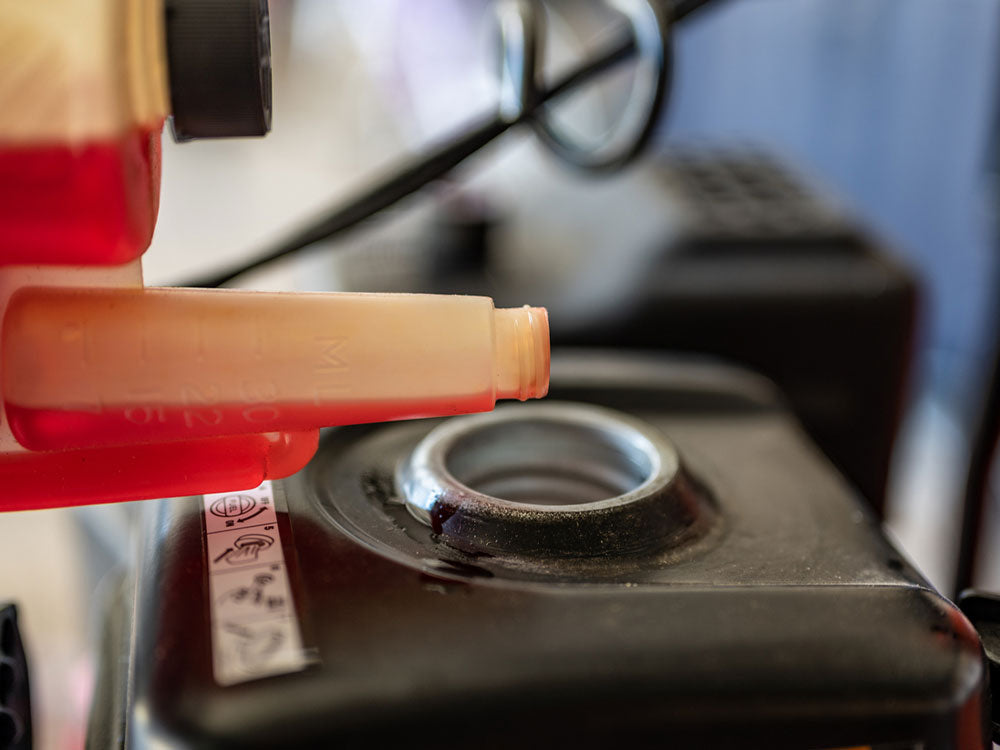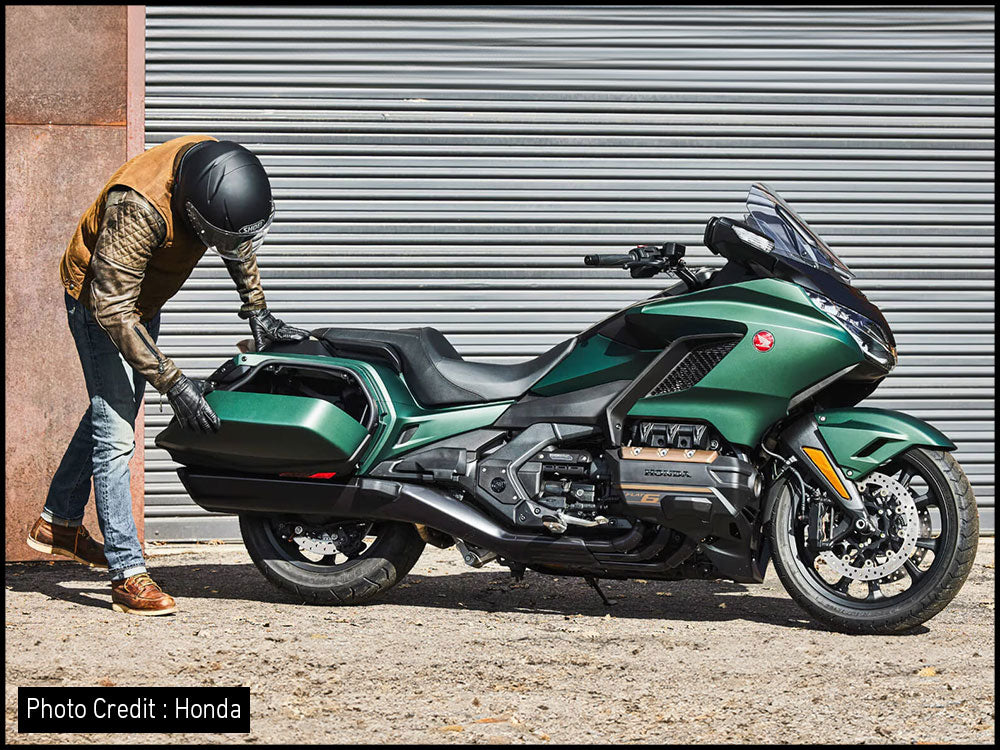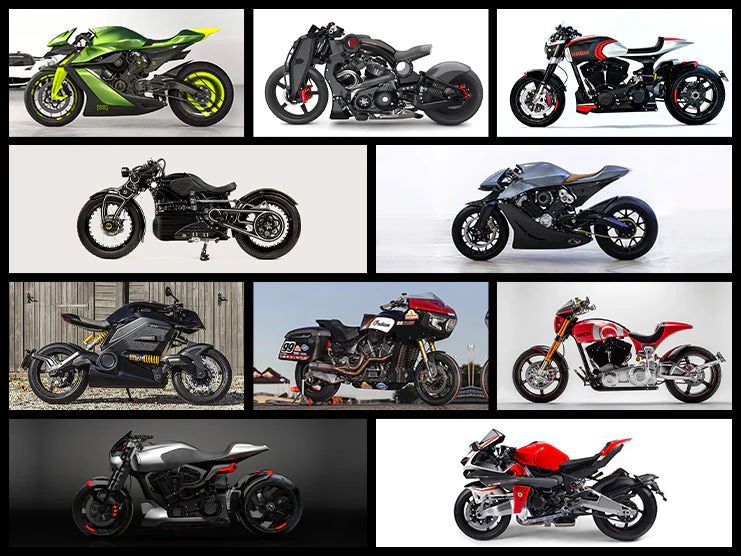Table of Content
Motorcycles have become a recreational vehicle for most motorcyclists. There was a time when motorbikes were used for transportation and daily commuting. Over time, motorcycles have not only become luxurious machines, but they are now expensive. Some motorcycles are even more expensive than cars. These luxurious and well-equipped motorcycles are used occasionally for touring and cross-country rides.
American riders love to go on motorcycle tours. They work most days of the year and save money so they can enjoy a long-distance motorcycle trip to a beautiful place whenever they get a chance. Such adventure riders have multiple bikes for different purposes depending on their preferences because touring bikes are heavy and large, which makes them unsuitable for riding in stop-and-go traffic. Most riders use standard and lightweight motorcycles for daily commutes and city traveling. To keep their touring bikes safe during this period, riders store their motorcycles in their garages for months.
In some areas where it snows during most of the year, the riders have no other choice but to store their motorcycles in winter. Storing a motorcycle keeps it safe from external damaging elements. However, if you leave the fuel inside the gas tank, it can cause certain adverse effects on your motorcycle fuel tank and the fuel delivery system, including the carburetors and fuel injectors. To avoid this, fuel stabilizers are used to keep the fuel safe and usable, allowing you to take your motorcycle out for a ride after a long period of inactivity. However, professional mechanics and motorcycle enthusiasts have also found certain adverse effects of fuel stabilizers that can leave your motorcycle dysfunctional. Read this article to learn whether fuel stabilizers can kill your motorcycle or whether they are good for it.
1. What Are Fuel Stabilizers and Why Do Motorcyclists Use Them?
Fuel stabilizers are chemical additives that are mixed with the fuel in small quantities to increase the shelf life of a fuel. The properties of the fuel change when a fuel stabilizer is added to it.
2. What Makes the Fuel Go Bad With Time?
- The fuel you use in your motorcycles stays clean and in good condition for only a shorter period, usually a month. After 30 days, the fuel that has not been used becomes bad for your motorcycle engine.
- The oxygen present in gasoline is quite beneficial for better fuel combustion and better emission standards. The oxidized fuel used the oxygen to burn completely, leaving only small traces of carbon dioxide and other hazardous gases. However, oxygen is always not suitable for gasoline if you have to store your motorcycle for a longer time. The presence of oxygen in the fuel results in an oxidation reaction which results in rust formation inside the fuel tank.
- The gasoline also contains a certain amount of ethanol which makes it a hygroscopic compound. Being hygroscopic, the fuel can attract moisture in the atmosphere. This moisture causes rust when it reacts with the metal. This is one of the reasons why your motorcycle does not start after being stored for a long time due to the accumulation of rust particles in the fuel tank. These rust particles then enter the fuel lines, injectors/carburetors, and then the engine.
- The ethanol-water layer present in the fuel tank bed is bad for your engine but it is not a major threat that can kill your motorcycle completely.
- The issue can arise when the motorcycle is stored for a longer period in winter. The water layer present in the fuel will freeze, resulting in either cold starts or a dysfunctional motorcycle engine.
- The gasoline has several additives already mixed with it in its standard form which makes it volatile. If you do not use the fuel for more than at least 30 days, the majority of the elements evaporate, leaving the thicker substances behind which form a gunk. The gunk in the fuel tank, fuel lines, and the engine can not only block the fuel lines but can degrade the performance of the motorcycle and can even damage the engine.
3. How Does the Fuel Stabilizer Increase the Shelf Life of the Fuel?
- When added to the fuel, fuel stabilizers make the mixture anti-evaporative.
- Fuel stabilizers repel moisture and when added to the fuel, it makes the mixture hydrophobic.
- Fuel stabilizers have certain chemicals that mix the layer of moisture present in the fuel tank with the gasoline to make the whole mixture flammable inside the engine.
- The fuel stabilizer also contains methanol which increases the burning capability of the gasoline even if there is a layer of water-ethanol present in the fuel tank. The fuel stabilizer helps mix the water layer with the fuel which eventually helps the mixture burn in the combustion chamber.
- To prevent the freezing of moisture present in the fuel, the fuel stabilizers also come with anti-freezing agents so you can store the motorcycle in winter without being worried about cold starts.
- To avoid oxidation of gasoline, fuel stabilizers have anti-oxidants in them.
4. Can Fuel Stabilizer Kill Your Motorcycle?
After establishing several benefits of adding fuel stabilizers in the gasoline before storing your motorcycle in winter or for some other reasons, we can conclude that fuel stabilizers are good for the health of your motorcycle, especially if you are planning to store them. However, this is not the case always. There are several aspects and considerations to look for before you buy a perfect fuel stabilizer for your motorcycle. There are certain fuel stabilizer products that are good, some of them are ordinary, and some of them do nothing. There are also some fuel stabilizers that can hurt your fuel tank, fuel lines, and engine.
Let’s go deeper into how a fuel stabilizer can cause damage to your motorcycle engine and its performance.
As discussed in the previous section, there are several benefits of using fuel stabilizer due to their unique properties which makes the fuel stay fresh in your gas tank for months. However, it depends on whether a particular fuel stabilizer has all the required elements that make it an ideal fuel stabilizer. The answer to this question is “No”. Not all fuel stabilizers perform their duties well.
5. Is Ethanol a Good Additive in Gasoline?
To avoid any damage to your motorcycle due to the bad-quality fuel in the fuel tank, you can use ethanol-free gasoline. Ethanol turns out to be the root cause of several problems in a situation when you are planning to store your motorcycle in winter as it attracts moisture in the air. However, ethanol is purposely added to the fuel because it has greater oxygen content which makes the fuel highly combustible in normal conditions. Due to the abundant amount of oxygen, almost all the fuel is burnt, leaving behind small traces of hazardous gases evacuated out of the exhaust.
Almost all the required necessary additives to help protect the fuel and keep it fresh are already present in the gasoline. The fuel stabilizers are found to provide protection to some extent. The gasoline contains a good amount of all the substances necessary to ensure better motorcycle performance in normal conditions. However, these standard additives in gasoline prove to be adverse when it comes to storing a motorcycle.
6. Which Fuel Stabilizer You Should Use?
If you have to choose a fuel stabilizer to keep your fuel in good shape while storing your bike, make sure to consider the one that provides better oxidation protection. The most damage to the motorcycle, when it is stored for a longer period in winter, is caused due to the oxidation of the gasoline. The presence of oxygen in large amounts catalyzes the rust formation inside the gas tank. Another important factor that you must consider is the anti-freezing property of the fuel stabilizer. A good fuel stabilizer keeps the gasoline in a fuel tank in liquid form even during winter storage.
7. The Bottom Line
The fuel stabilizers are only good for a motorcycle if you are planning to store it during the winter or due to some other reason. Otherwise, if you are using your motorcycle regularly, there is no need to add a fuel stabilizer to the gasoline. When you keep consuming the fuel and refuel fresh gasoline in your fuel tank, there is little to no possibility that the gunk will form or the fuel will attract any impurities, especially moisture in the atmosphere.
However, if you are planning to store your motorcycle, fuel stabilizers can be helpful only if they are of good quality. Fuel stabilizers could be better as there are plenty of them available in the market of varying qualities. Most fuel stabilizers are only good in only one department, i.e., they may be good in avoiding the freezing of fuel during winter storage or they may be good in avoiding oxidation reactions. However, most fuel stabilizers do nothing and some of them even cause harm to your motorcycle.
If you are planning to store your motorcycle, make sure to provide a safe environment for your motorcycle. Keep it stored in a warm place and make sure to take care of the fluids as well so they do not damage the motorcycle over time. Taking good care of your motorcycle can make it last longer and investing in it can make it perform better. You can also increase the resale value of your motorcycle by installing aftermarket parts available at Viking Bags, including saddlebags, sissy bars, fairings, crash bars, backrests, and tank bags.













Leave a comment
All comments are moderated before being published.
This site is protected by hCaptcha and the hCaptcha Privacy Policy and Terms of Service apply.